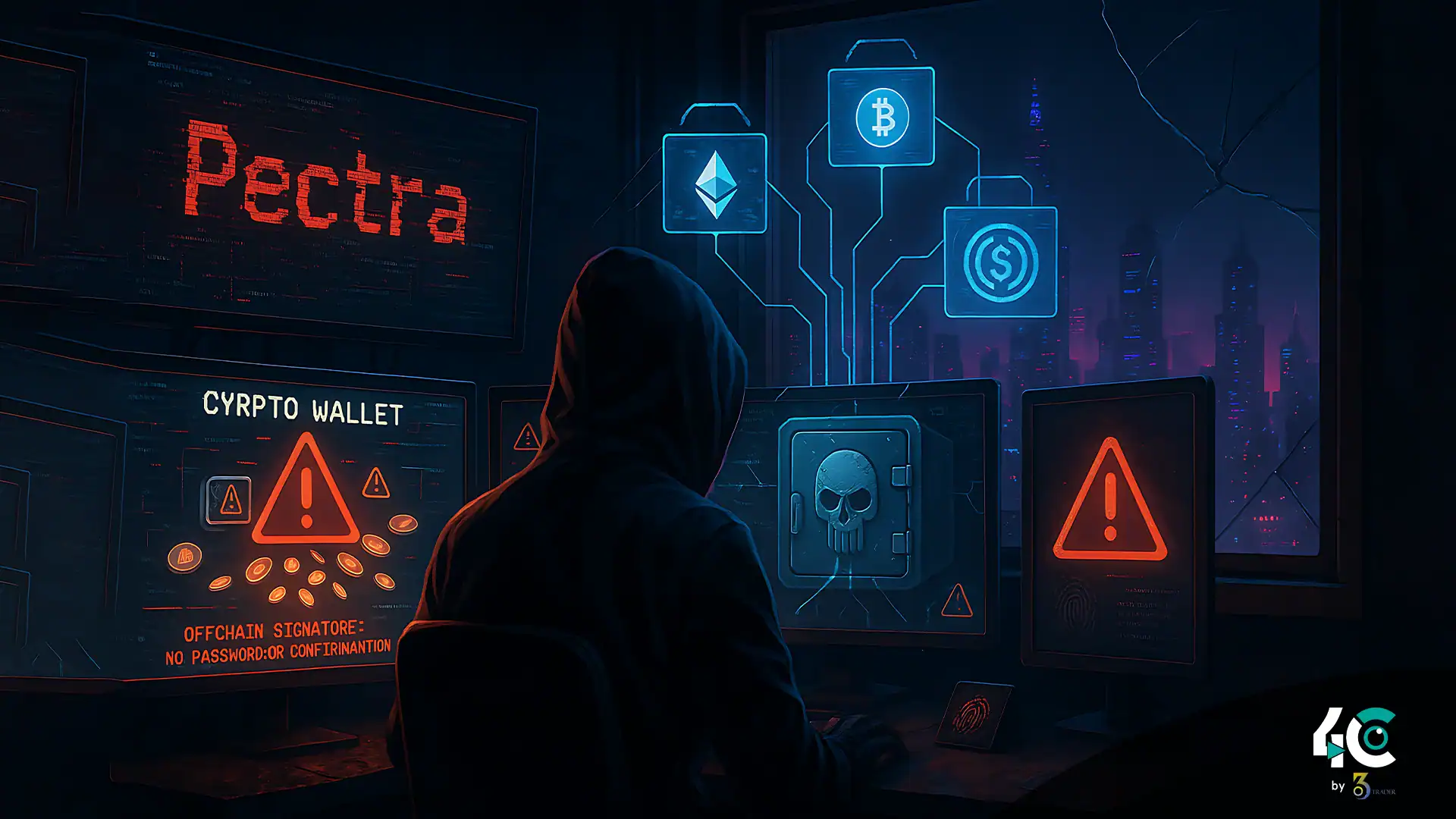The Ethereum Pectra upgrade brings significant enhancements, including EIP-7702, which allows wallet control through off-chain signatures. While this feature aims to improve user experience, it also introduces new security vulnerabilities that users and developers need to address.
Ethereum Collision with Pectra Upgrade Has Dangerous and Dark Innovation
The latest Ethereum upgrade occurred on May 7, 2025. The specter of Ethereum brought about significant improvement in functionality. This upgrade introduced the Ethereum Improvement Proposal 7702 (EIP-7702). The update includes advanced smart account features designed for usability and enables wallet delegation via off-chain signatures. This feature greatly simplifies communication with DApps (decentralized applications) and smart contracts; however, it also creates a dangerous loophole that puts user funds at enormous risk.
Security experts have expressed concern over the new functionality that allows attackers to take complete control of wallets with just an off-chain signature. This means bad actors can drain funds and perform operations without users actively approving any on-chain actions.
How the Vulnerability Works
The issue centers around the new “SetCode” transaction type (0x04) that permits delegation of wallet control to a third party off-chain. When a user signs a message with this code, they unknowingly permit attackers to install custom logic in their externally owned account (EOA). Once this logic is installed, it acts like a smart contract, allowing the hacker to carry out commands on the infected wallet, such as transferring tokens.
The process is alarmingly simple
- An attacker tricks the victim into signing an innocent-looking off-chain message. Phishing scams, fake DApps, and misleading messages accomplish this.
- The attacker can fully control the wallet if there are malicious delegation instructions in the signed message.
- Even hardware wallets, which are considered secure, are not safe; just one off-chain signature is enough for the attacker to take over.
This vulnerability is concerning because it deviates from Ethereum’s traditional security model. Before, users had to give explicit, on-chain approval whenever they wanted to change a wallet or transfer funds. Just one off-chain signature—possibly replayable across many Ethereum-approved networks—can have hard and final consequences.
This change represents a significant advancement in security
The Pectra upgrade will significantly transform Ethereum’s method of managing account permissions. By implementing off-chain delegation, the platform has offered a level of convenience that comes at a high cost: reduced user control over their wallets.
For example, attackers could exploit this feature too.
- Withdraw Funds: Once they gain access to the stolen wallet, they can withdraw funds from there. They won’t just take it all at once but will instead slowly shift the funds to a new wallet.
- The malicious code installation can enable the logic installed via SetCode to act independently.
- Cross-network exploitation is possible because offchain signatures can be replayed on other Ethereum-compatible chains.
Users may remain unaware of their compromised wallets, making the situation worse. Off-chain signatures are not the same as on-chain transactions, which require the user’s consent. Instead, they can execute silently without alerting the victim.
What Experts Are Saying
Security experts have urged users and developers to act soon. If you use off-chain signatures that incorporate an account nonce, which is strictly associated with a wallet, this may indicate harmful delegation.
- Wallet creators are urged to implement tougher protections, such as requiring additional verification for delegation requests.
- Wallet creators should warn users when signing any message that involves delegation and account modifications.
- Wallet interfaces should be able to analyze and flag potentially dangerous requests before users approve them.
It is important to consider campaigns that make people aware of off-chain signature risk.
Currently, it is up to users to handle these issues independently. One expert said, If you don’t understand what you’re signing, don’t sign it. Messages about account changes or delegation are particularly prone to misuse.
The Future: Future-proofing Innovation and National Security
With the new Pectra update, Ethereum users are likely to encounter many new options. However, the unforeseen outcomes of EIP-7702 highlight the importance of testing a significant upgrade and implementing proper protection beforehand.
For now, users should be careful not to use untrustworthy DApps or sign messages of indeterminate intent. Wallet service providers must quickly evolve their tools to ensure users are educated.
The community must face these vulnerabilities as Ethereum continues to evolve. If confidence in the system is shaken, then the adoption of a blockchain will be slowed down.
Conclusion
Ethereum’s Pectra upgrade aims to make the ecosystem more adaptable and user-friendly. However, it also serves as a warning about the associated risks. The off-chain signature exploit is a reminder to developers and users alike that convenience should never trump security.
For now, the best defense is awareness. Users should remain vigilant until the Ethereum community releases an official patch. A bad signature can lose you everything in crypto, after all.



























